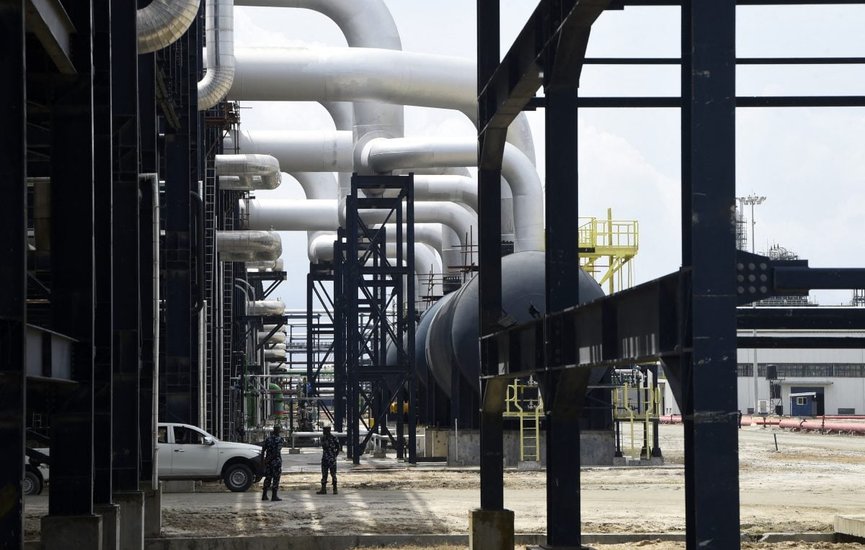Nigeria’s powerful oil unions have mounted a direct challenge to the Dangote Refinery, Africa’s largest oil refining facility, in a move that has stirred national debate over labor rights, industrial policy, and the future of private-sector energy investments. Led by the Petroleum and Natural Gas Senior Staff Association of Nigeria (PENGASSAN), the unions staged a multi-day strike in September 2025, temporarily halting operations at the refinery. The action was triggered by allegations of unfair labor practices, including the dismissal of unionized workers and the refusal to recognize union representation, which the unions described as violations of Nigeria’s labor laws and collective bargaining agreements.
The Dangote Refinery, operational since 2023, is a cornerstone of Nigeria’s energy strategy and a symbol of industrial ambition. Its disruption sent shockwaves through the country’s fuel supply chain, raising concerns about potential shortages and economic instability. The strike drew swift intervention from the federal government, with officials from the Ministry of Labor and Employment stepping in to mediate between the refinery’s management and union representatives. After tense negotiations, PENGASSAN agreed to suspend the strike and enter into formal dialogue, though union leaders warned that further action could follow if their demands were not met.
The confrontation sparked a broader political response, with members of Nigeria’s House of Representatives debating a motion to protect strategic private investments from what some lawmakers described as “adversarial union tactics.” This proposal was met with fierce opposition from labor advocates, who argued that it threatened to erode workers’ rights and undermine the principles of fair labor practices. The clash highlighted the growing tension between economic liberalization and labor protections, as Nigeria seeks to attract investment while maintaining social equity.
As operations resumed at the Dangote Refinery, the spotlight remained on its labor policies and the broader implications for Nigeria’s industrial landscape. The unions vowed to continue monitoring compliance and to hold management accountable for any breaches of labor standards. The episode underscored the rising influence of organized labor in shaping the country’s economic direction and the need for transparent, inclusive policies that balance investor confidence with workers’ rights. It also served as a reminder that Nigeria’s path to industrial growth must be built on a foundation of fairness, dialogue, and mutual respect.
